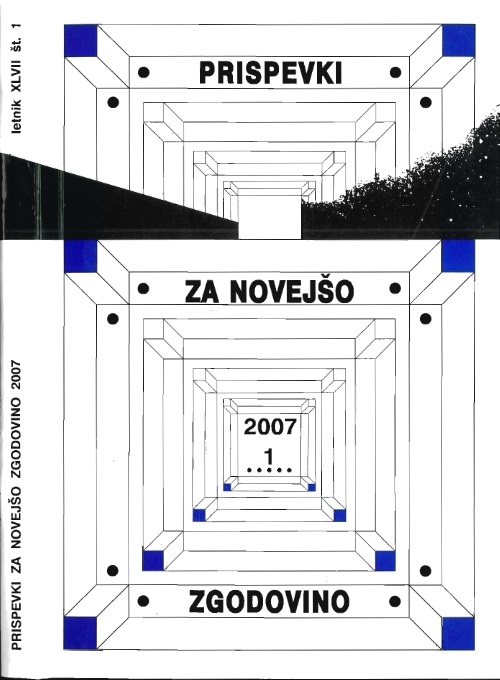Ideološke osnove kolaboracije v Evropi med drugo svetovno vojno ter kratka primerjava s Slovenijo
The Ideological Bases of the Collaboration in Europe During the Second World War and a Short Comparison with Slovenia
Author(s): Boris MlakarSubject(s): Civil Society, History of ideas, Political history, Government/Political systems, Nationalism Studies, WW II and following years (1940 - 1949), History of Antisemitism
Published by: Inštitut za novejšo zgodovino
Keywords: Europa; Slovenia; second World War; occupation; occupying regimes; collaboration; ideology; Nazism; nationalism; anti-Semitism;
Summary/Abstract: Using extensive literature and some archive sources, the author explores the ideological and political bases of various forms and degrees of the collaboration with occupying regimes in selected European cauntries during the Second World War. Individual cases are then briefly compared with the situation and events in the occupied Slovenia. He concludes that, in Western Europe and the Baltic states, the main ideological role was played by extreme nationalist movements. In this respect, there were also attempts to create some kind of Fascist International, which the Nazi leadership intended to mobilise in its campaign far the so~called 'new Europe'. In some areas, anti-Semitism and anti-Communism, i.e. the fear of a Soviet domination, featured prominently. The latter, reinforced by the violent attitudes of the partisan movement, was typical of Slovenia. Everywhere, the emergence of collaboration was connected with survival and opportunism, although the latter may only be classified as an ideological basis conditionally.
Journal: Prispevki za novejšo zgodovino (before 1960: Prispevki za zgodovino delavskega gibanja)
- Issue Year: 47/2007
- Issue No: 1
- Page Range: 151-167
- Page Count: 17
- Language: Slovenian

